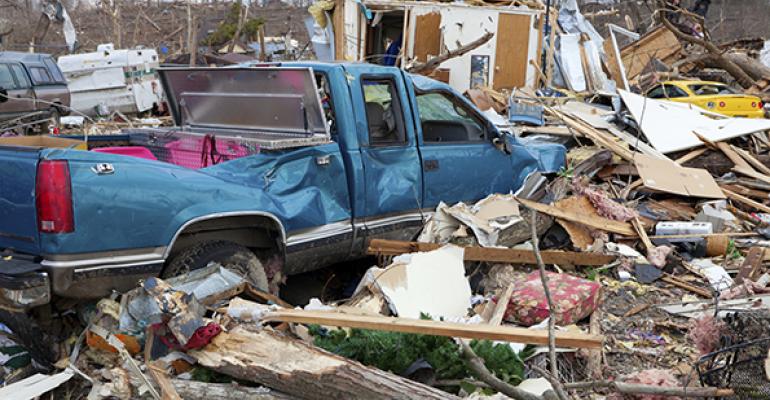
The National Endowment for Financial Education, American Red Cross and the American Institute of Certified Public Accountants have teamed up to create a guide for how to deal with a natural disaster financially. According to the report, more than a third of Americans rely on credit cards when emergency expenses occur, and nearly half live paycheck-to-paycheck. Just a third report having an emergency savings fund. The report deals with how to handle insurance claims, estate planning - including creating a living will - and how to protect your personal records. The full guide can be found here.
Get Your Billions Back, America

Are you losing out on your share in retirement? $24 billion is being left on the table each year, according to data from Hearts and Wallets, a financial research firm, working out to more than $1,300 per American worker. Much of that is lost simply because people are not contributing enough to their workplace retirement plans to get their full employer match. Among households eligible for a plan, only 56 percent participated last year, down 60 percent from the previous year. The average household savings allotted to employer-sponsored retirement plans fell from 29 percent in 2013 to 22 percent in 2014. Some workers don’t believe they can get by on less than their full take-home salary, causing them to either not enroll or opt out if they have been automatically enrolled.
Advisors Can't Ignore Clients' Philanthropic Goals

Data from Giving USA found that charitable giving rose for the fifth consecutive year to nearly $360 billion, finally surpassing its pre-recession peak. In a panel discussion hosted by CEG Worldwide, several financial planners said this trend isn’t likely to slow, and advisors ignore clients’ philanthropic goals at their own risk. Even though charitable giving is closely tied with the economy, Tim Belber, the founder and principal of The Alchemia Group, argued that increasingly, retiring boomers giving away to charity will offset the effects of a market downturn on the philanthropic organizations. Belber also said that millennials are more inclined to invest in companies that align with their causes. By aligning their advice with their clients values, the panelists said, advisors can become a magnet for some of the wealthiest and best-connected people in their community.

It should go without saying that advisors should have a good website, but many still have poor visibility on the web. That could cost them. A recent Fidelity survey found nearly twice as many of emerging affluent investors are likely to find a new financial advisor through internet research than millionaires. More than half (58 percent) say they have a significantly more positive impression of financial advisors who have a good website. Additionally, over a third of these emerging wealthy investors follow their advisor on social media sites and 30 percent say that they’re more likely to relate to an advisor who is on social media.




